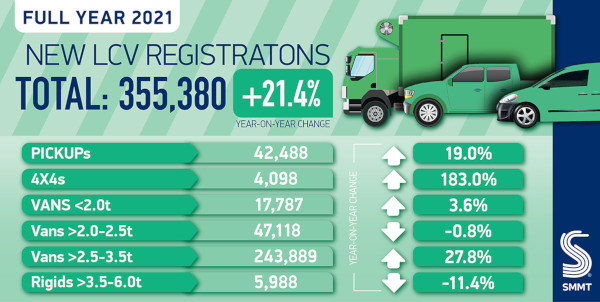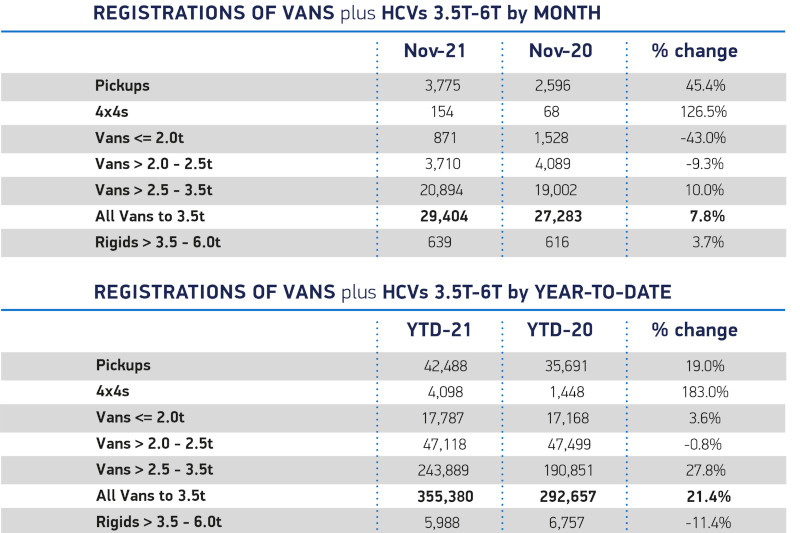LCV Registrations for 2021 increased massively compared to 2020 numbers.
Despite the continuing parts shortages and coronavirus restrictions, the SMMT recorded a 21.4% increase in all LCV Registrations under 3.5T compared to the previous year.
Their data shows that in 2021, a total of 355,380 Light Commercial Vehicles were registered, compared with 292,657 in 2020. The great majority of these registrations were vans between 2.5T and 3.5T, which are medium and large vans.
This strong result was due in large part to the late year performance, with December especially being a good month for registrations. While this would infer that manufacturers have begun to resolve the parts shortage issues, it must be stated that this will remain an issue for some time to come, so numbers may vary.
Electric vans make up 12,759 of that number, which is a record for zero-emissions LCVs. This is a massive increase over 2020, which saw just 5,266 electric vans registered. With restrictions on diesel vans arriving in the coming years, this number should only increase.

In terms of van models, the best seller charts look much as they have for some time. Ford Transit Custom and Ford Transit 350 lead the pack by a significant margin, and remain the most popular vans in the UK.
The Mercedes Sprinter and the VW Transporter are the next large and medium vans, respectively, with the Vauxhall Vivaro close behind.
For small vans, there is not much to separate the four vehicles on the chart, and only 1,500 sales between them across the whole year.
Mike Hawes, SMMT Chief Executive, said, “After a difficult 2020, the commercial vehicle sector has bounced back, with registrations recovering to just shy of pre-Covid levels. While demand has remained robust, there is still the potential for market volatility with the Omicron variant and component shortages threatening supply chains. Manufacturers are working hard to ensure deliveries, and, with a record number of battery electric vans registered this past year, customers can be assured that more of these new technology vehicles will be available to keep society and businesses moving in an increasingly zero-emission manner.”
With registrations increasing, this will likely begin to strain supply, and it remains to be seen whether manufacturers will face the same challenges as 2020 and 2021. Hopefully, with measures in place to mitigate the parts shortage issues, we can see smoother supply and greater vehicle availability. This should lead to higher sales and an even stronger year in 2022.

